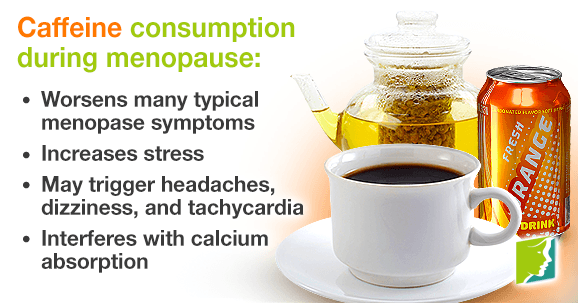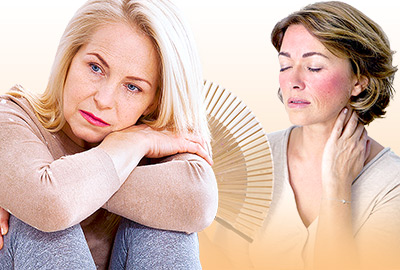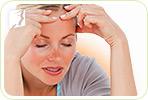Are you suffering from the uncomfortable effects of menopause? Becoming fed up with the sudden hot flashes, the unpredictable mood swings, or the constant feeling of fatigue? However, when you seek advice, you're told to cut caffeine out of your diet. How could you possibly do that when your morning coffee gets you through the day? Should you follow the advice and consider alternatives? The answer is probably yes.
How Does Caffeine Affect Menopausal Women?
Cutting caffeine from your diet is a recommended treatment for all menopausal symptoms. Caffeine consumption can have a negative impact on your body and make menopause more difficult to deal with. Avoiding coffee, tea, and energy drinks may require self-discipline, but your effort and persistence will be worthwhile.
Caffeine is associated with the main symptoms of menopause
It has been scientifically proven that the consumption of caffeine increases the frequency and severity of hot flashes. Coffee can also have a negative impact on symptoms like fatigue, because energy levels and alertness increase, and then suddenly plummet, which can affect your health and mental state. Caffeine can also impact sleeping patterns.
Caffeine can cause stress
Consuming caffeine increases the production of cortisol, the stress hormone. When stress hormones are released, the body goes into fight-or-flight mode. This is known as the panic response and gives temporary boosts of energy. However, the artificial increase of stress hormones has a negative effect on health. Too much cortisol in the body can have a negative impact on the amount of estrogen and progesterone present. If this happens, it can further imbalance hormone levels already destabilized by menopause.
Caffeine restricts the natural balance of hormones
Caffeine can have negative effects on your hormones, which can cause general health problems. For example, it increases the level of homocysteine in the body which, in turn, increases the risk of osteoporosis, a symptom associated with menopause.
Caffeine prevents the absorption of minerals
The consumption of caffeine has a direct effect on the minerals essential to a woman's health. It reduces the amount of calcium and magnesium reabsorbed in the kidney, which causes minerals to leave the body instead of being used.
Caffeine creates lower density in bones
A high intake of caffeine can cause a loss in bone density. This can be especially problematic for women, since there is already an increased risk of loss of bone density in older women.
So, What Can You Drink Instead?
So, what can you replace your cup of coffee with? Herbal teas can be a healthy alternative, as can drinking more fresh fruit juices, since they are loaded with vitamins. Ensure your water intake is always high, and if you must drink caffeine, try lower caffeine options such as de-caffeinated coffee or tea.
More Information about Menopause
While reducing caffeine intake is an important step in alleviating menopausal symptoms, there are many other dietary changes that you can make. Follow this link to find out ways to combat menopause symptoms.
Sources
- Faubion, Stephanie S. MD; Sood, Richa MD; Thielen, Jacqueline M. MD; Shuster, Lynne T. MD. (2015) "Caffeine and menopausal symptoms: what is the association?" The Journal of the North American Menopause Society. 22(2);155-158.




